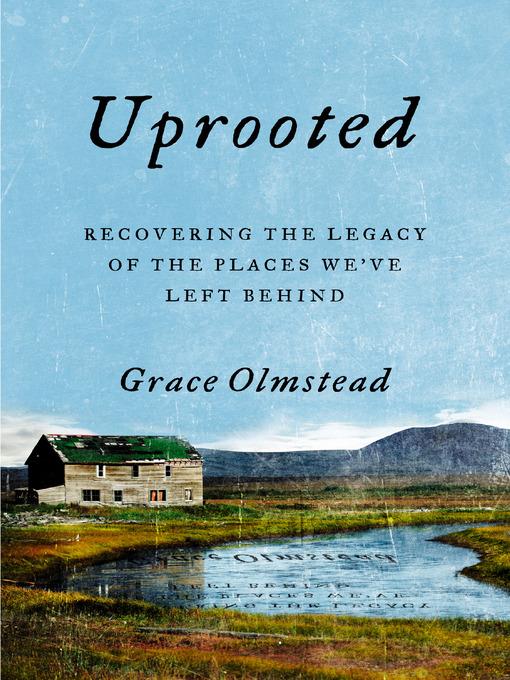
Uprooted
Recovering the Legacy of the Places We've Left Behind
- اطلاعات
- نقد و بررسی
- دیدگاه کاربران
نقد و بررسی

February 1, 2021
A Washington, D.C.-based journalist returns to her Idaho birthplace and muses about its decline. Permanently settled in the 1860s by a mixture of homesteaders, miners, and loggers, Emmett grew into a prosperous farming town. It also became almost entirely White because that's what settlers wanted. "The history of Emmett...is rife with horrific stories of murder and abuse of local Native Americans," writes Olmstead, and Idaho laws forbidding Asian land ownership stayed on the books until 1952. Along with local history, the author offers a skillful mixture of memoir, polemic (in the vein of Michael Pollan), and paean for rural communities (� la Wendell Berry, cited often). She paints a simultaneously vivid and discouraging picture of the consequences of a profit-hungry economic system in which "mobility is equated with success and rootedness with failure." Even as she matured in a loving family and close-knit community, Olmstead faced consistent pressure to leave. The ruthless combination of the free market and government policy was converting family farms into megafarms focused only on "profit-focused ends." In the 1980s, farmers earned 37 cents from every dollar Americans spent on food; today, it's 15 cents and dropping. As an industrial product, food increasingly became an input for other industrial products. Perhaps the author's greatest shock was discovering Emmett's dependence on supermarkets, which carry few local goods. Surrounding farms once provided much of their food, but no more. One Virginia farmer told Olmstead that "farming is seen as what you do if you can't do anything else." The author also describes an organic farm, a workaholic entrepreneur expanding his produce farm, and a couple who left the city to restore a family farm. While these stories reflect optimism, much of Olmstead's urgent narrative, a kindred spirit to Marie Mutsuki Mockett's American Harvest, suggests that too much has been lost already. A superior exploration of the consequences of the hollowing out of our agricultural heartlands.
COPYRIGHT(2021) Kirkus Reviews, ALL RIGHTS RESERVED.

March 5, 2021
Olmstead treats with gratitude and respect the "rootedness" she felt growing up in Emmett, ID. She asserts that her great-grandfather and others white Idahoans of his generation felt deep satisfaction with the lives they chose and their enduring bonds to the land and to their communities. Those who leave Idaho, or their own home states, she warns, need to reckon with what they are losing by leaving. A journalist now living outside Washington, DC, she concludes that, despite her fear, a person can find a tight-knit community even as a newcomer in a densely populated suburb on the other side of the country. Still, she plans to return to Emmett with her children to renew family ties and care for her parents. Olmstead doesn't always make a convincing case either way; the book's chapters alternate between reflections on her childhood and her desire to move back home, and her ruminations result in sometimes uneven writing. She describes Idaho as homogeneous, and she doesn't engage with the idea that the experiences of Black, Asian, and Indigenous Idahoans might suggest a need for more change and less rootedness among white residents of the state. VERDICT While Olmstead successfully creates a full portrait of her family, especially her grandpa, her calls to rediscover the land fall a little short.--Cynthia Harrison, George Washington Univ., Washington, DC
Copyright 2021 Library Journal, LLC Used with permission.




دیدگاه کاربران